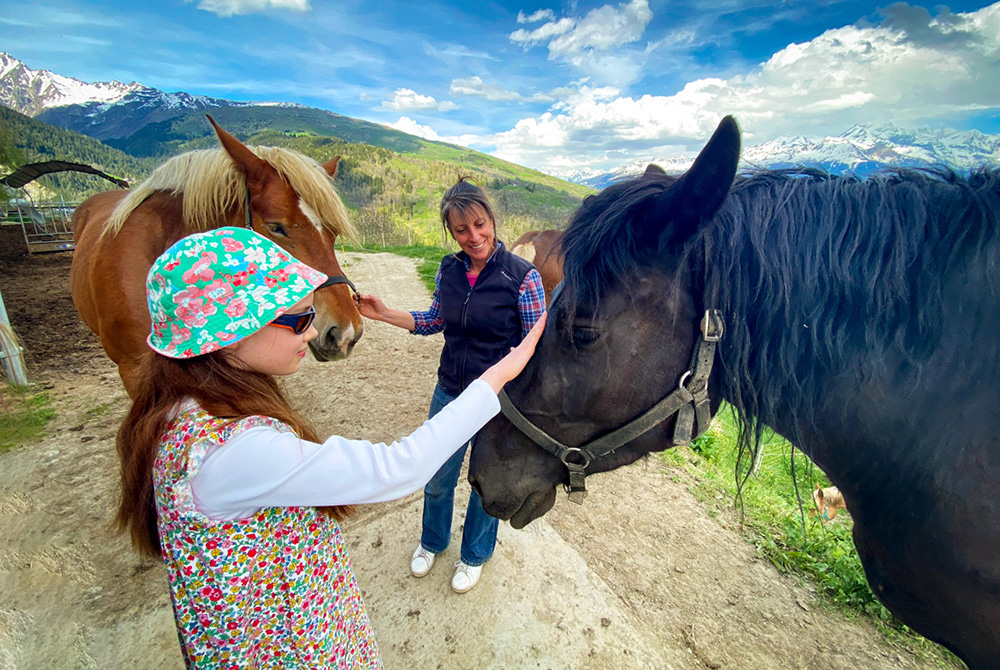Discover the enchanting world of the mares' stable at Tarentasia - Les Crinières de Lait in Granier.
Our recent visit to this charming farm offered an unforgettable experience, especially for our daughter Aimée, who is passionate about horses.
Join us as we explore the unique Comtois breed, the fascinating milking process, and the delightful moments spent with various farm animals.
Whether you're a horse enthusiast or simply looking for a heartwarming story, this visit to the mares' stable will captivate your heart.
A Memorable Visit to the Mares' Stable
Aimée and horses, it’s a love story. Our daughter enjoys her horse-riding sessions in England.
It’s simple: her toys are now all horse-themed.
So when we heard about the Granier stable, Tarentasia - Les Crinières de Lait, a visit was a must!
Shortly after our arrival in Granier, we visited the farm to meet the 18 Comtois mares and their foals.
Carole Chenal welcomed us and took the time to talk about her passion.
The Comtois Breed
The Comtois is a medium-sized draft horse breed specific to the Franche-Comté region.
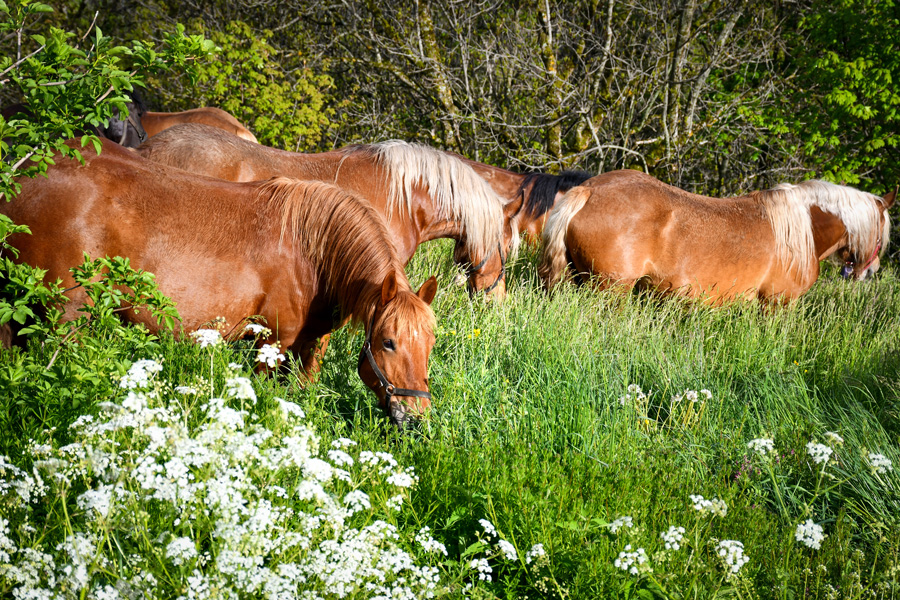
Comtois Horses
Traditionally chosen for field work, the Comtois has become a hardy draft horse, capable of living outdoors all year round.
The Comtois is a stocky, compact, and dense draft horse with short, powerful limbs, standing between 1.50 and 1.65 metres at the withers and weighing between 650 and 800 kg.
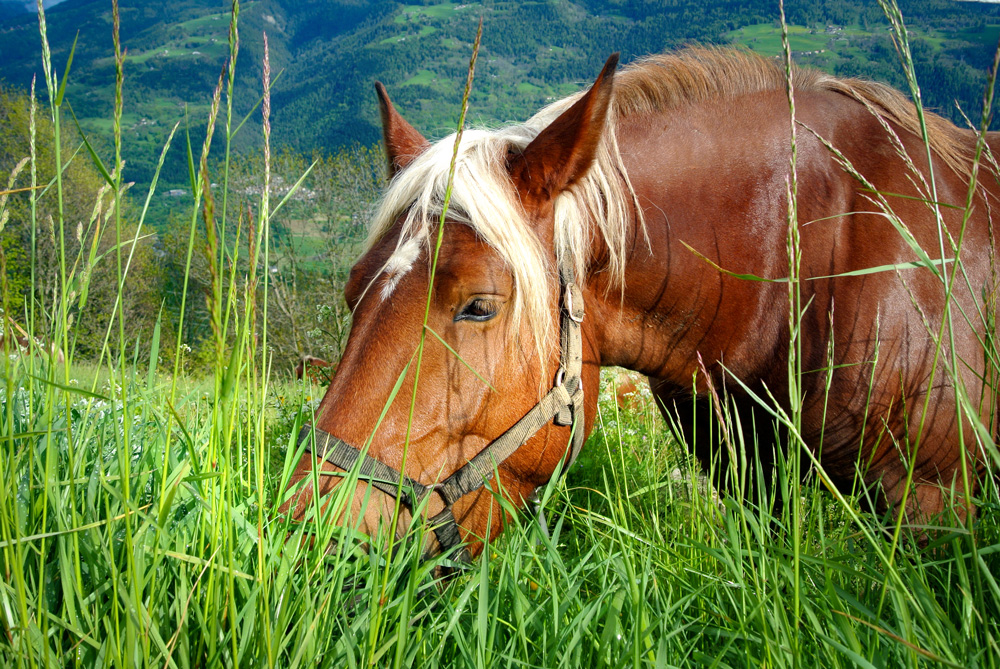
Comtois Horse
Enduring, resilient, and rustic, the Comtois horse is accustomed to the harsh climatic conditions of its region of origin.
It has therefore adapted well to different climates, including that of the Tarentaise in the Savoie Alps.
Milking the Mares
The mares are milked in semi-freedom, in a herd, with their foals.
The mare produces milk for about six months, approximately 12 litres per day, to feed her foal.
However, she only gives milk in the presence of her foal.
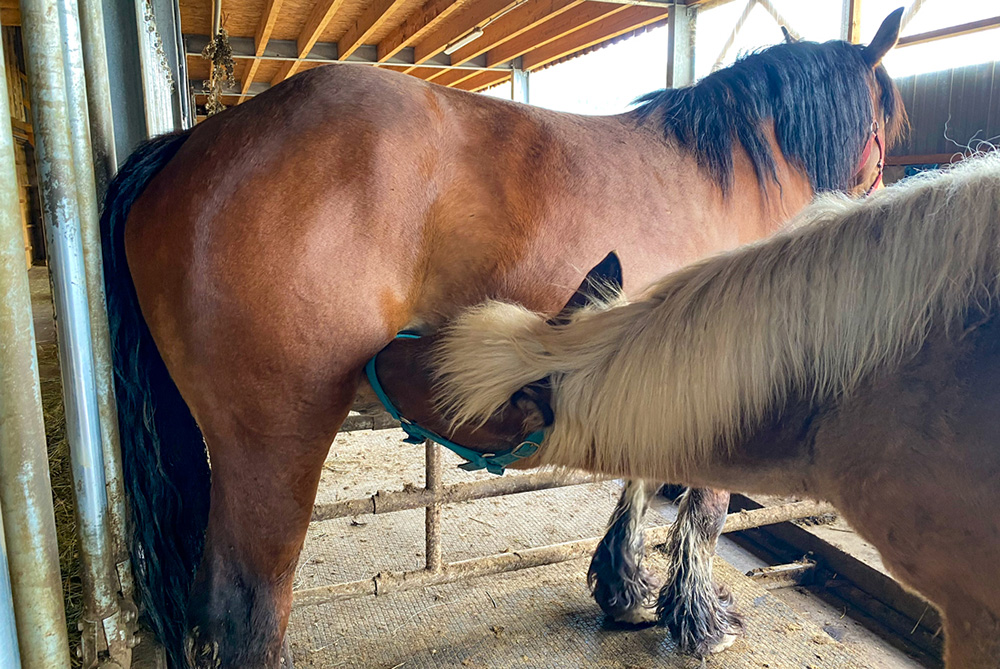
Milking moment!
The foals drink the milk first; only the remainder is collected.This milk is then transformed into cosmetic products, mainly soap, body cream, lipstick, and shaving balm.
Carole explained to us that mare’s milk is the closest to human milk, low in fat and rich in lactose and vitamin C.
Thus, until World War II, mare’s milk was used in French maternity wards.
The Cosmetic Properties of Mare’s Milk
Unexpectedly, mare’s milk also has cosmetic properties!
It is moisturising, antioxidant, helps cell regeneration, and slows down skin ageing.
The shop offers a range of products made from mare’s milk.

The stable's shop
Meeting the Farm Animals
But that’s not all!
Aimée was delighted to find a Vosgienne cow, sheep, goats, rabbits, and chickens at the farm.
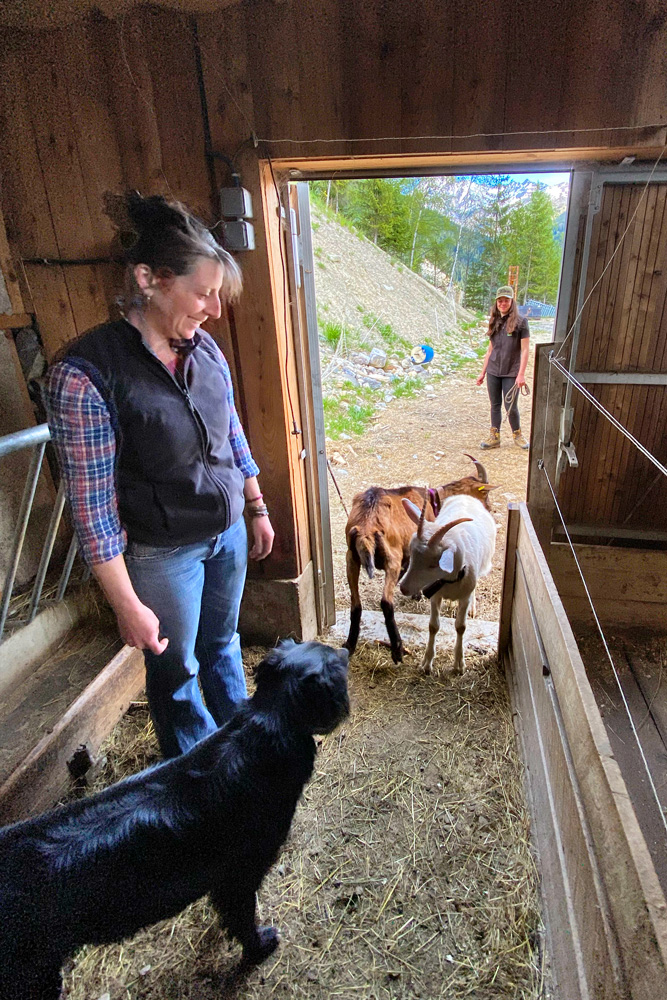
At the farm
Petting the rabbits was one of her favourite activities, as well as playing fetch with the dog Suzie.

Cuddling the bunnies
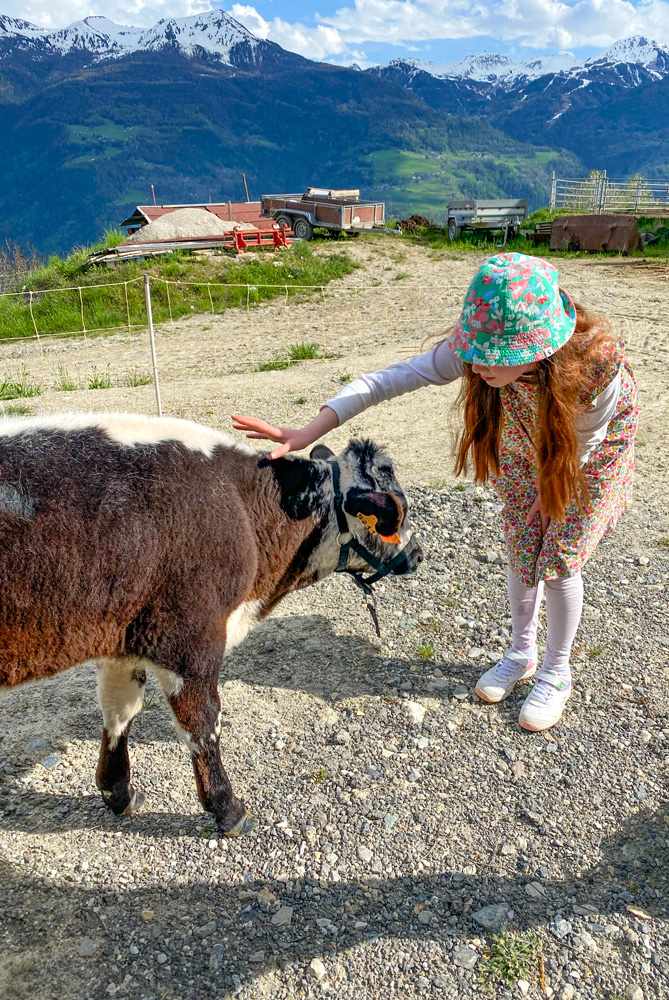
The Vosgienne cow
Crossing the Village to the Pastures
Later in our spring stay, I received a message from Carole informing me that ten mares were leaving the stable for the pastures.
On the way, they had to cross the Alpine village of Granier, somewhat like the “petite emmontagnée” of Tarine cows.
(The term "emmontagnée" refers to the seasonal movement of livestock to mountain pastures for grazing.)
It was an unforgettable moment for Aimée, who walked at the front with Carole.
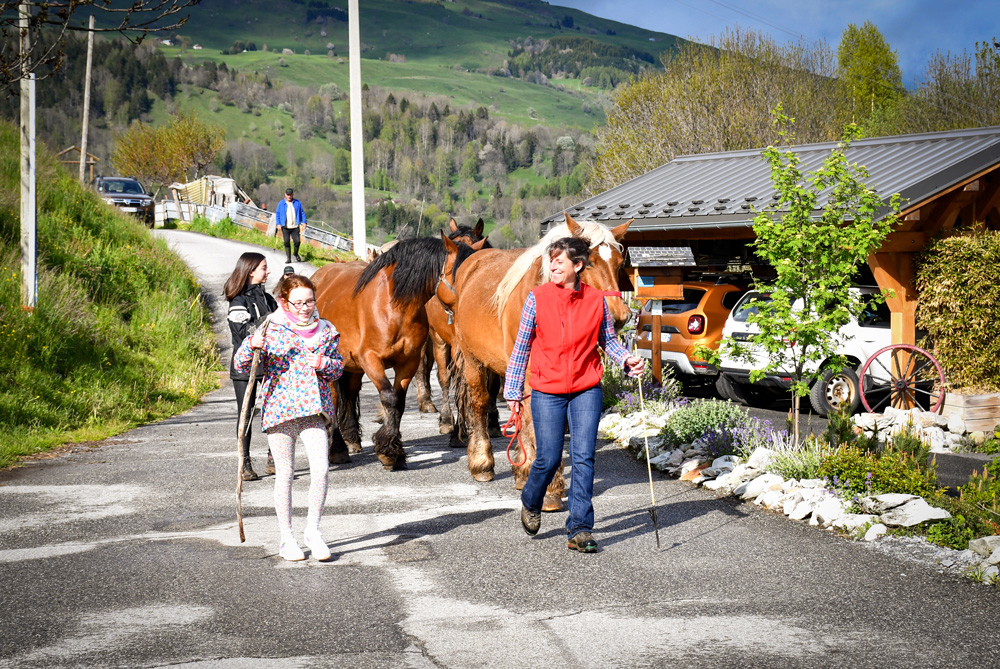
The Petite Emmontagnée
Through the village, I juggled between video on my smartphone and photos on my camera - luckily, I had my father assisting me.

Crossing the village of Granier

In the village of Granier
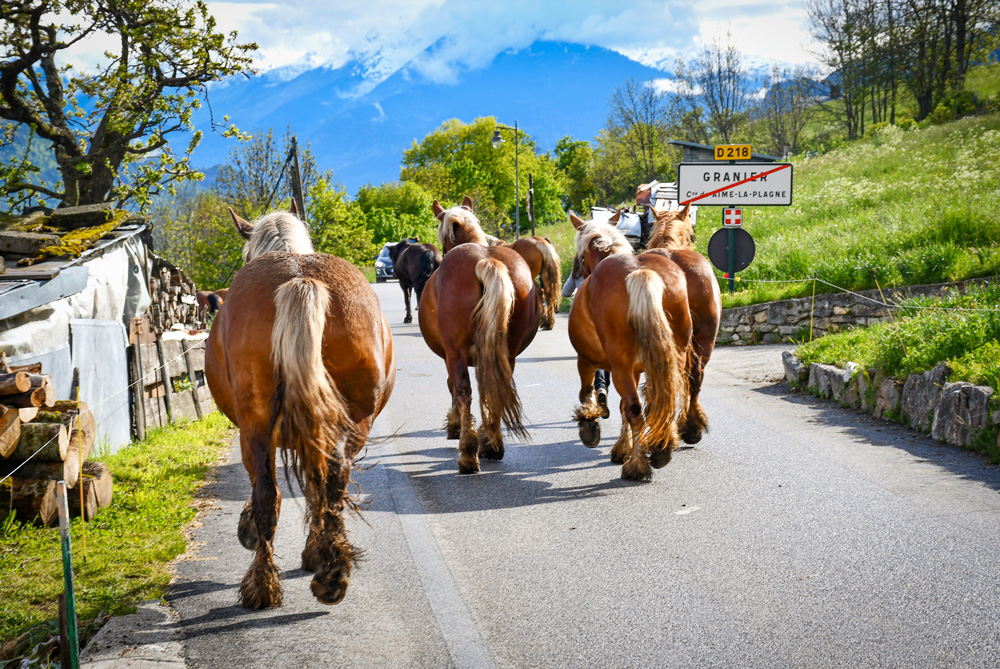
Nearly there!
The mares were happy to run towards a meadow with tall grass at the edge of the village.
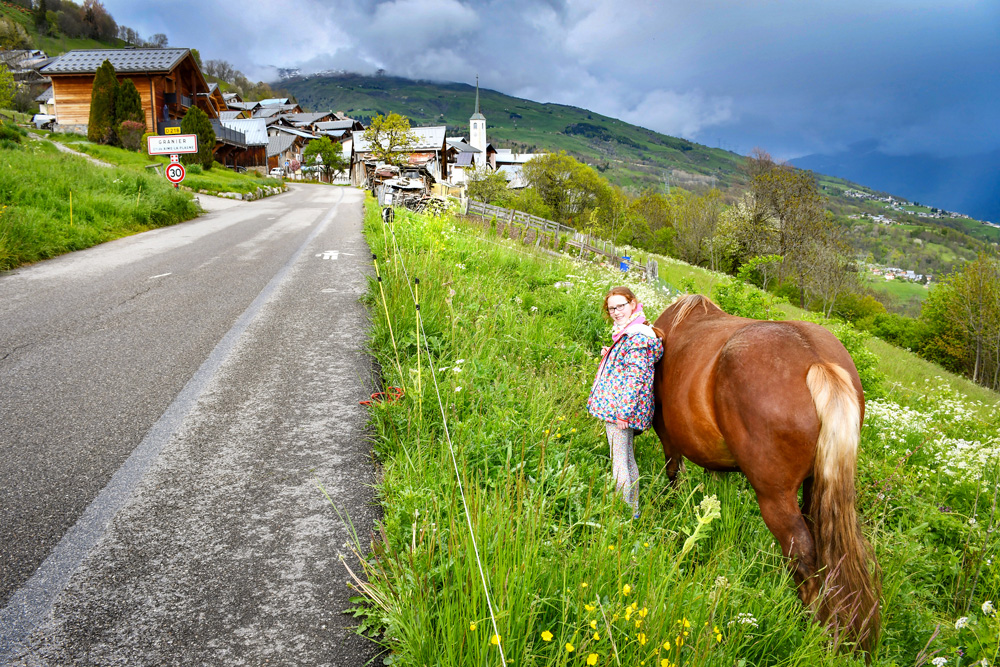
Arrived in the field!
I posted a short video on Vimeo about the event:
The mares will stay day and night in this village field until mid-June, then they will move up to the Thiabord alpine pasture at 2,000 metres altitude.
This will be their “emmontagnée”.
As a family, we promised to come back to witness this beautiful event next year.
If you want to know more about the Tarentasia - Les Crinières de Lait farm, follow their Facebook page.

